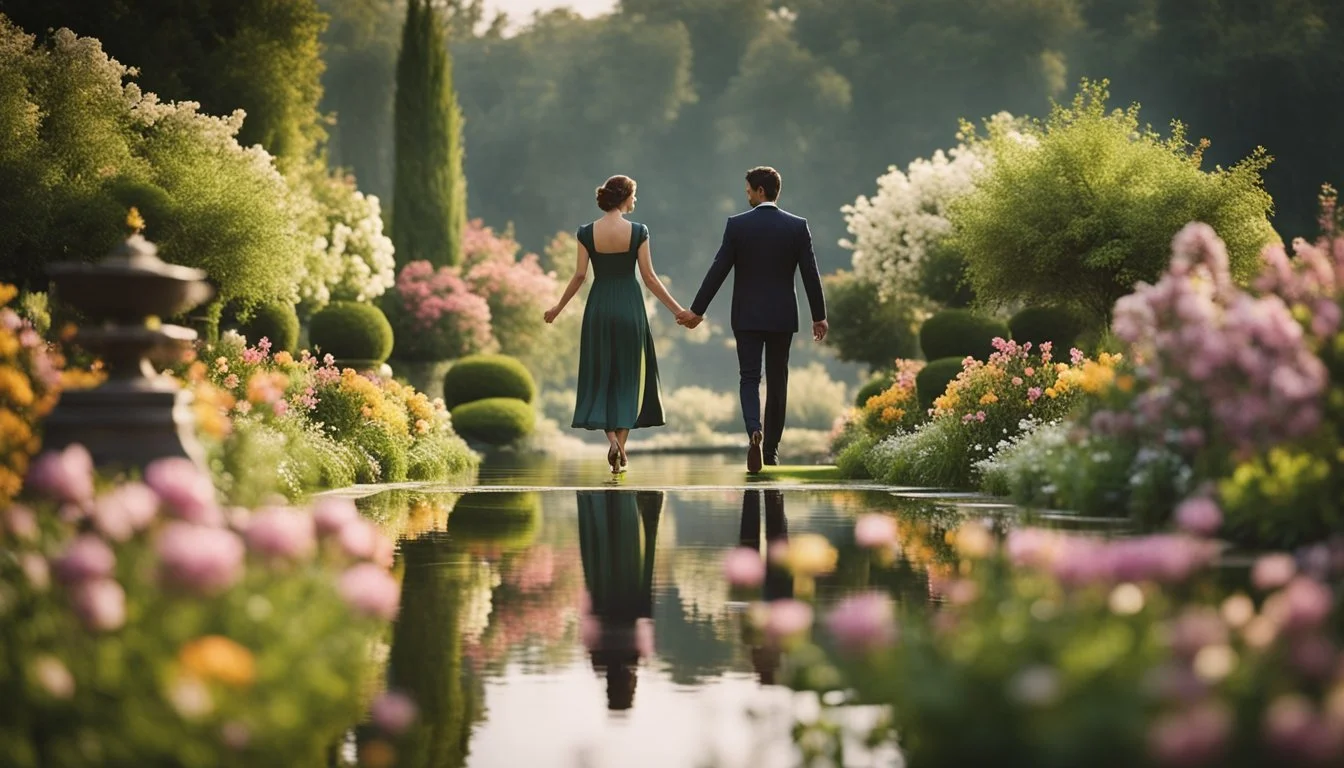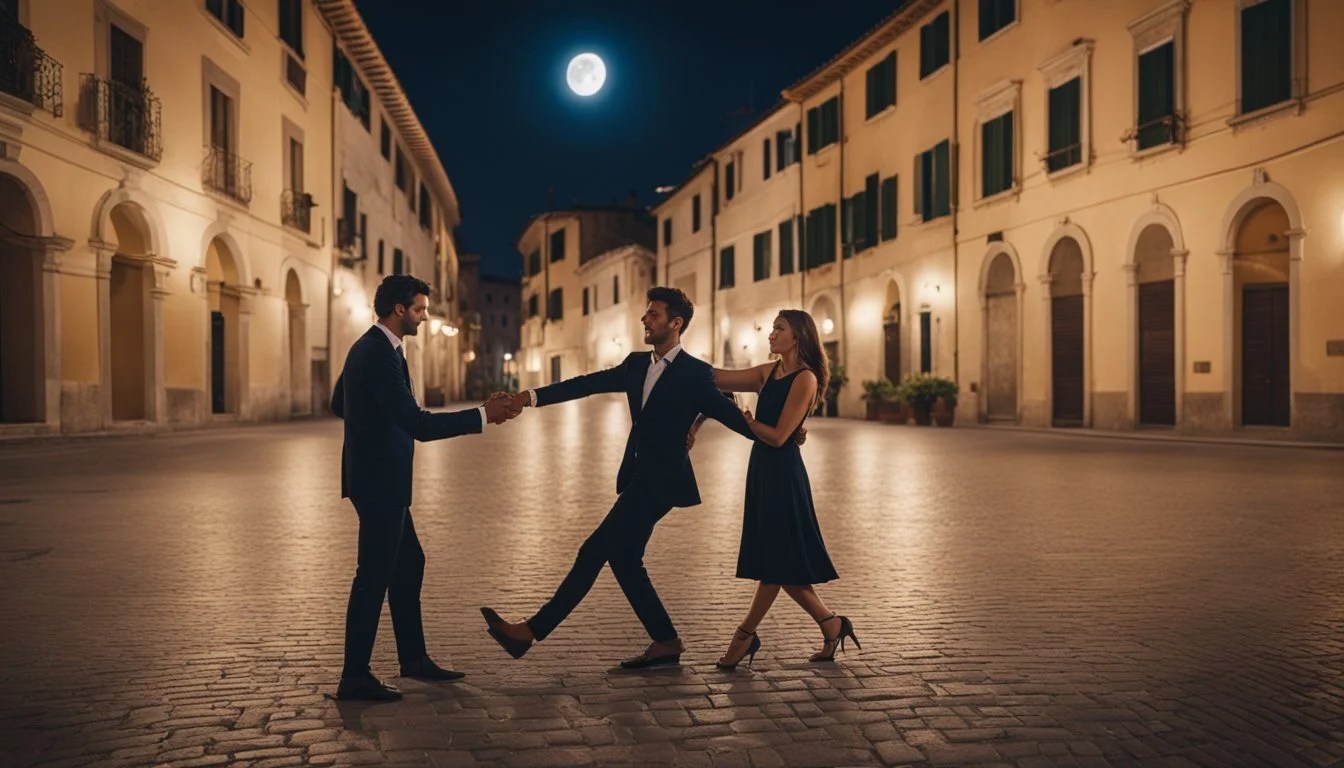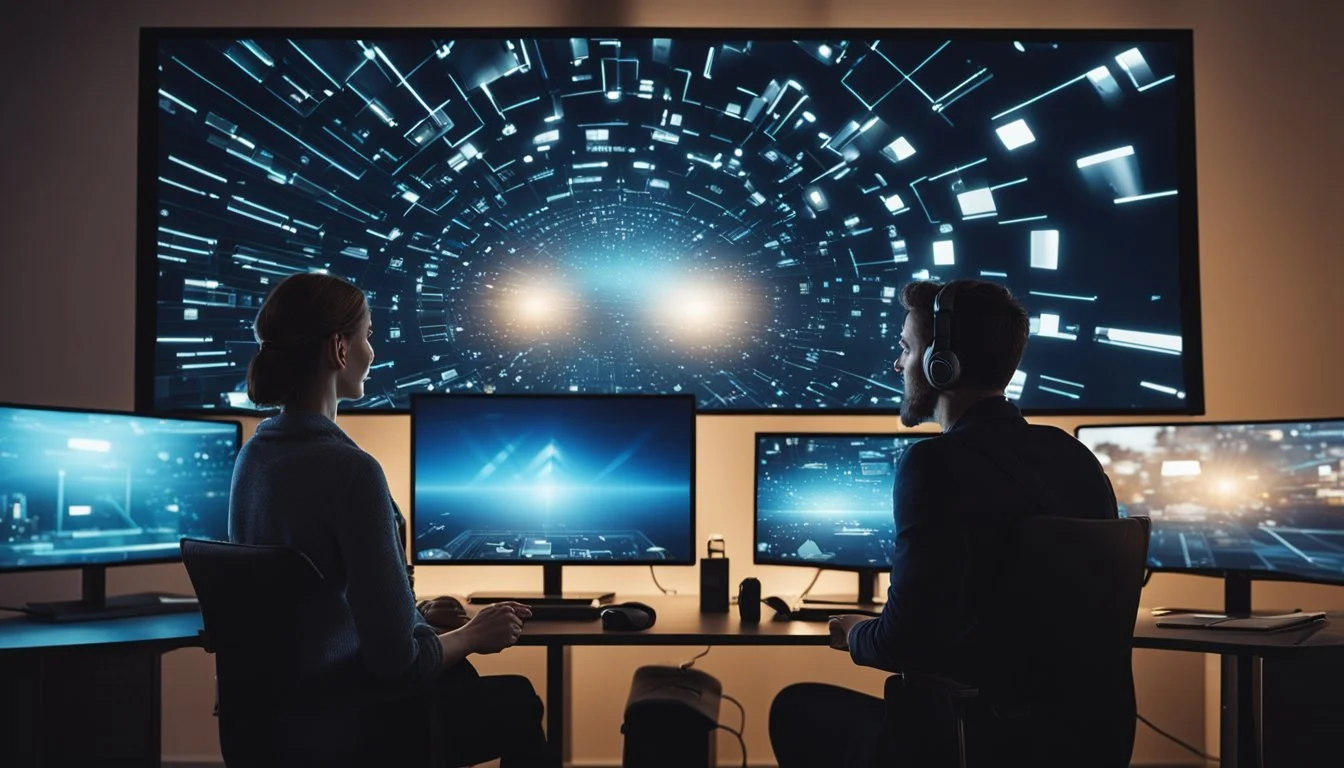4 Documentaries That Explore Love in Different Eras
A Journey Through Time and Emotion
Love has captivated filmmakers and audiences for generations, inspiring countless stories across cinema. Documentaries offer a unique lens to examine real-life relationships and societal attitudes towards romance throughout history. By exploring love in different eras, these films provide insights into how cultural norms and personal expectations have evolved over time.
Four compelling documentaries stand out for their ability to capture the essence of love across various periods. These films delve into the complexities of human connections, from classic Hollywood romances to modern dating challenges. Through intimate interviews and archival footage, they reveal the universal themes that unite lovers across generations while highlighting the distinct characteristics of each era's approach to relationships.
1) 'Marriage Italian Style' (1964)
'Marriage Italian Style' is a romantic comedy-drama directed by Vittorio De Sica. The film stars Sophia Loren and Marcello Mastroianni in leading roles.
Set in post-World War II Italy, the story revolves around Domenico, a wealthy businessman, and Filumena, a former prostitute. Their complex relationship spans decades, filled with passion and conflict.
The film explores themes of love, class differences, and the institution of marriage in Italian society. It showcases the cultural norms and expectations of the era through the lens of this tumultuous romance.
De Sica's direction brings out nuanced performances from Loren and Mastroianni. Their on-screen chemistry adds depth to the characters' evolving relationship.
'Marriage Italian Style' received critical acclaim for its portrayal of complex emotions and societal issues. It was nominated for two Academy Awards, including Best Foreign Language Film.
The movie offers a glimpse into Italian culture and relationships during a transformative period in the country's history. It remains a classic of Italian cinema, praised for its storytelling and performances.
2) 'The Time Traveler's Wife' (2009)
'The Time Traveler's Wife' is a romantic drama that blends science fiction elements with a love story. The film stars Eric Bana as Henry DeTamble, a librarian with a genetic disorder that causes him to involuntarily travel through time.
Rachel McAdams plays Clare Abshire, Henry's wife who must cope with his unpredictable disappearances and reappearances throughout their relationship. The movie explores how their love endures despite the challenges posed by Henry's condition.
The narrative jumps back and forth in time, mirroring Henry's experiences. It showcases pivotal moments in Clare and Henry's lives, from their first meeting to their struggles with starting a family.
Director Robert Schwentke adapts Audrey Niffenegger's novel of the same name, bringing its complex themes of fate, free will, and the nature of love to the screen. The film raises questions about the impact of time on relationships and personal identity.
More information about 'The Time Traveler's Wife' (2009)
3) 'A Room with a View' (1985)
'A Room with a View' is a romantic period drama directed by James Ivory. The film is based on E.M. Forster's 1908 novel of the same name.
Set in Edwardian England and Italy, the story follows Lucy Honeychurch, a young English woman played by Helena Bonham Carter. During a trip to Florence, Lucy meets and falls for the free-spirited George Emerson.
The film explores themes of love, societal expectations, and personal growth. It contrasts the repressive nature of Edwardian English society with the passion and freedom Lucy experiences in Italy.
'A Room with a View' received critical acclaim for its performances, cinematography, and faithful adaptation of Forster's novel. It won three Academy Awards and launched the careers of several young actors.
The film's depiction of Florence and the Tuscan countryside serves as a beautiful backdrop for the unfolding romance. It captures the essence of a transformative journey, both physically and emotionally.
4) 'Outlander' (2014) TV Series
'Outlander' is a historical drama series that blends romance, time travel, and adventure. Based on Diana Gabaldon's novels, it premiered in 2014 and quickly gained a devoted following.
The show centers on Claire Randall, a World War II nurse who mysteriously travels back in time to 18th-century Scotland. There, she meets Jamie Fraser, a Highland warrior, and their love story unfolds across centuries.
Caitrióna Balfe stars as Claire, with Sam Heughan portraying Jamie. Their on-screen chemistry contributes significantly to the series' appeal.
'Outlander' explores themes of love, loyalty, and cultural clash. It vividly depicts both 1940s Britain and 1700s Scotland, offering viewers a rich historical tapestry.
The series stands out for its strong female lead and its portrayal of a complex, mature relationship. It tackles difficult subjects while maintaining its core romantic narrative.
'Outlander' has received critical acclaim for its acting, costume design, and cinematography. It continues to captivate audiences with its blend of history and passion.
Historical Perspectives on Love
Love has transformed dramatically across different eras and cultures. Its evolution reflects changing societal values, gender roles, and cultural norms over time.
Evolution of Romantic Ideals
Ancient civilizations often viewed love as a divine force. In ancient Greece, myths portrayed powerful love stories between gods and mortals. Medieval Europe introduced courtly love, emphasizing chivalry and noble pursuits.
The Renaissance period brought a shift towards more personal expressions of love. Poetry and literature celebrated romantic passion. During the Enlightenment, reason and companionship became important aspects of relationships.
The 20th century saw significant changes in romantic ideals. Women's rights movements reshaped traditional relationship dynamics. Love became increasingly associated with personal fulfillment and individual happiness.
Cultural Influences on Relationships
Different cultures have unique perspectives on love and relationships. Western societies often emphasize romantic love as a basis for marriage. In contrast, many Eastern cultures traditionally prioritize family approval and social harmony.
Some cultures practice arranged marriages, while others value freedom of choice in partners. The concept of monogamy is not universal, with some societies accepting polygamy or other relationship structures.
Globalization has led to a blending of relationship customs. Cross-cultural marriages have become more common. Social media and dating apps have changed how people connect and form relationships across cultural boundaries.
Religious beliefs continue to shape views on love in many societies. They influence ideas about marriage, family, and appropriate expressions of affection.
Impact of Technology on Modern Romance
Technology has revolutionized how people meet, connect, and maintain relationships. Digital platforms and devices have created new avenues for romance while also presenting unique challenges for couples navigating love in the 21st century.
Love in the Digital Age
Social media and messaging apps have transformed courtship rituals. Couples now stay connected throughout the day through texts, video calls, and shared online experiences. Dating apps like Tinder and Bumble have made it easier to meet potential partners, expanding romantic possibilities beyond traditional social circles.
Virtual reality and AI are pushing the boundaries of digital intimacy. Some explore unconventional relationships with AI companions, as portrayed in films like "Her." However, constant connectivity can also lead to issues like digital jealousy and "phubbing" - ignoring one's partner in favor of a smartphone.
Online Dating Phenomenon
Online dating has become a dominant way for singles to meet. In 2022, 30% of U.S. adults reported using dating apps or sites. These platforms use algorithms to suggest matches based on shared interests and values.
While online dating expands options, it also presents challenges:
"Paradox of choice" - overwhelming number of potential matches
Misrepresentation through carefully curated profiles
"Ghosting" and disposable dating culture
Despite drawbacks, many successful relationships now begin online. Dating apps have notably increased interracial and inter-faith couples by connecting people outside their immediate social circles.




